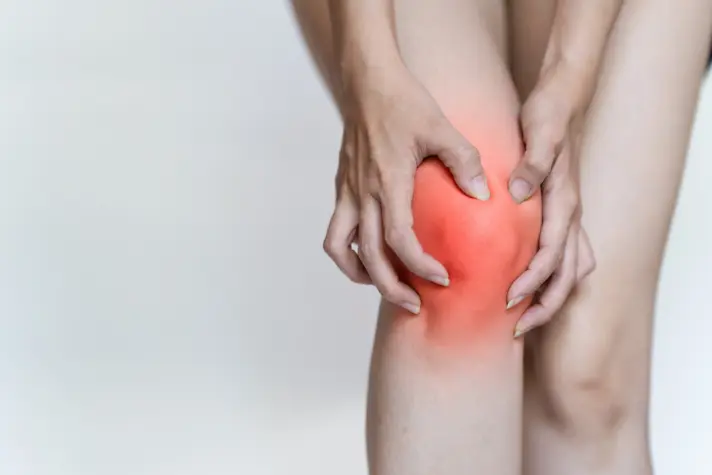
Poor bone health commonly slips under the radar until a fracture occurs.
Since they are not outwardly visible it can be difficult to identify a problem early on. However, there are several signs and symptoms that can clue you into this issue before you suffer a break.
In this post, we’ll outline five signs of deteriorating bone health to watch out for and several strategies and lifestyle habits that can help improve the health of your bones.
Let’s get started with one of the first signs of reduced bone density.
1. Muscle and Bone Pain
While aches and pains can be a common occurrence, especially as we age, they can serve to notify us of a bigger problem.
These types of aches and pains can indicate that our bodies are deficient in vitamin D, which is an important nutrient for strong bones.
Muscle cramps can also signal that your body is experiencing low levels of calcium, magnesium, or potassium. This type of nutritional deficiency can negatively impact bone health as well, especially if it is a long-term issue.
2. Brittle Hair and Nails
Your hair and nails can provide some insight into the state of your bone health.
When hair and nail strength is reduced, it is likely that your bones are beginning to suffer from weakness as well. Individuals with low levels of collagen will usually experience hair and nail breakage that can alert you to a problem occurring with your bones as well.
If you’re experiencing an ongoing problem with brittle nails then it may be a good idea to get your bones checked out too.
3. Reduced Grip Strength
Grip strength has been shown to have a correlation with the density of your bones and their resistance to fractures. If you’re experiencing difficulty turning doorknobs or having a hard time with activities that involve grip strength, then you may also be dealing with deteriorating bone health.
4. Receding Gums
While receding gums and poor dental health can be due to a variety of factors, they are also a sign of poor bone health.
When your jaw bone begins to experience reduced density this can result in receding gums. On your next trip to the dentist, it may be a good idea to ask them to screen for this type of bone loss.
5. Height Loss
As we begin to age, it is common to gradually lose a few inches in height. While this problem can be caused by a thing like poor posture, it can also be due to bone health and ultimately bone loss.
Tips to Improve Bone Health

The first step in dealing with bone loss is identifying the symptoms, but we also need to take steps to improve bone health to avoid fractures and related consequences.
The following tips can help you increase bone density and get started on the path to stronger bones:
- Stop Smoking: If you currently smoke, then you are putting yourself at risk for reduced bone mass. So stop smoking immediately.
- Reduce Alcohol Consumption: Drinking alcohol, especially in excess, can leech the nutrients from our bodies and reduce bone density.
- Increase Calcium Intake: Calcium is a big player when it comes to healthy bones and a deficiency can result in weak bones.
- Supplement with Vitamin D: In addition to calcium, vitamin D can also help strengthen bones.
- Enhance Fitness: Without regular physical activities, both muscles and bones begin to deteriorate. Engaging in daily exercise can support improved fitness and strengthen your bones.
If you are currently experiencing symptoms of deteriorating bone health then it’s important to take the necessary steps to resolve the issue.
Doing this early on can save you from fractures and related issues and improve your overall health and mobility.
About The Author:
Susan Murray enjoys writing about health and fitness and sharing her knowledge with others to support their wellness goals. She has worked at a variety of health-related businesses and currently works with WaterGuard.




